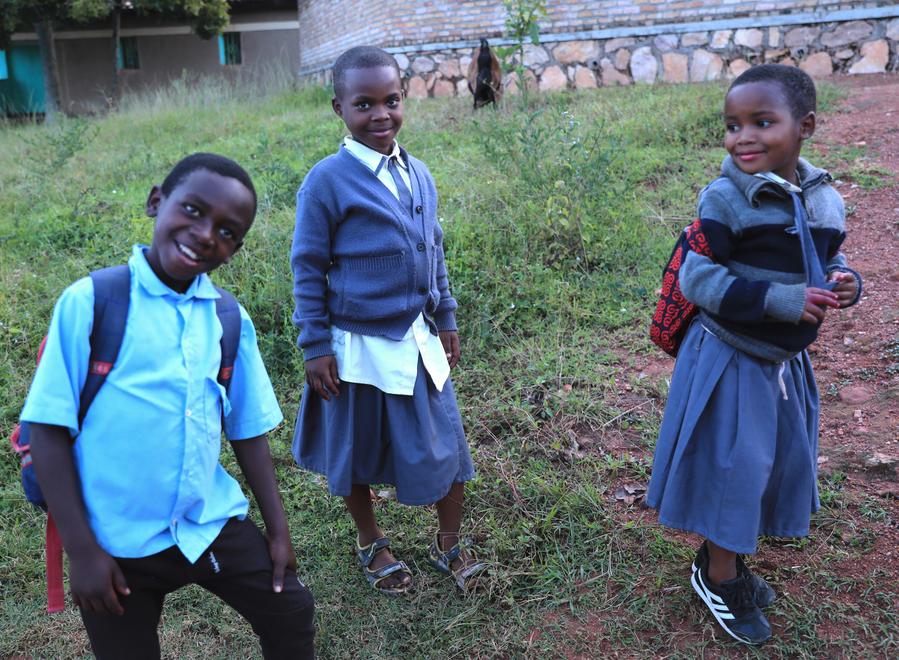Rwanda's rebirth -- a nation of unity emerges from shadow of genocide


EMBRACING FORGIVENESS AND RECONCILIATION
In July 1994, a Government of National Unity was established by the RPF, comprising both Hutu and Tutsi officials, marking a pivotal step towards transcending the deep-seated divisions that had torn the nation asunder.
Central to the reconciliation efforts was the overhaul of the constitution, which saw the removal of ethnic categories from identity cards. No longer were Rwandans defined by Hutu or Tutsi labels; instead, they embraced a shared identity as Rwandans, united in their common humanity.
In the wake of the atrocities, the country faced a severe shortage of judges capable of adjudicating the staggering number of cases. With over 100,000 individuals accused of participating in the genocide, the Rwandan government sought innovative solutions to deliver justice and facilitate recovery.
Thus, the Gacaca courts emerged as a unique and transformative mechanism for reconciliation. Held in community settings, these grassroots tribunals provided a platform for victims and perpetrators alike to confront the truth, seek forgiveness, and foster understanding.
Mukamana also attended the courts. "The perpetrators told me the truth, they asked for forgiveness, said they had been misled by the genocidal regime, informed me of the place where they dumped the remains of my family members. I managed to find the remains of my relatives and gave them a decent burial."
Since their inception in 2002, over 12,000 Gacaca courts have convened across Rwanda, adjudicating more than 1.9 million cases.
REBIRTH FROM ASHES
With a stable political landscape, sound security and a commitment to transparent governance, Rwanda has achieved remarkable economic and social development in recent years.
According to the World Bank, Rwanda's economy has registered remarkable growth, with an average annual rate of 7.2 percent and a corresponding rise in GDP per capita by 5 percent between 2009 and 2019. Kigali received the UN-Habitat Scroll of Honour award in 2008, becoming the first African city to earn the prize.
Drawing inspiration from local traditions of communal support, Rwanda has pioneered a series of "Home Grown Solutions" aimed at accelerating socio-economic development. The "Girinka" program, for instance, distributes cows to impoverished families, with the proviso that the first calf born is gifted to a neighboring family, fostering both economic empowerment and social cohesion.
Mukamana created a cooperative called Duterimbere with a dozen women in the village, selling hand-made decorations to subsidize their families. "Duterimbere means 'to go forward with enthusiasm'," she said, "our village was reborn from the ashes of genocide."
"After the devastation of 1994, Rwanda faced a crossroads," observed Gasominari. "Yet, through deliberate choices of reconciliation, reconstruction, and national renewal, Rwanda has emerged as a shining example of resilience and progress."
As a member of the global South, strengthening South-South cooperation is an important direction for Rwanda's external engagement. The government-funded Rwanda Cooperation Initiative was established in 2018 to showcase Rwanda's transformative innovations to global partners and to strengthen exchanges and cooperation among developing countries in their quest for development.
In 2018, Rwanda joined the China-proposed Belt and Road Initiative. According to statistics, the highways built by Chinese enterprises account for more than 70 percent of the country's total mileage, becoming the arteries of Rwanda's economic and social development, interconnecting the landlocked country and connecting it to its neighboring countries.
"I commend the manner in which China engages with Africa, including its collaboration with Rwanda. The Forum on China-Africa Cooperation, initiated by China, is not a means of colonization but rather a platform for fostering people-to-people collaboration. The Chinese development model, which seeks to transition the nation from poverty to prosperity, serves as inspiration for other developing countries," said Ngendahimana.
During the ceremony commemorating the United Nations Day for South-South Cooperation last September, Manasseh Nshuti, Rwandan minister of state in charge of the East African Community in the Ministry of Foreign Affairs and International Cooperation, underscored the importance of South-South cooperation.
"I urge each of us to pause and contemplate the immense potential that South-South cooperation holds. It is not confined to the exchange of ideas or the signing of agreements; it is about forging enduring bonds of solidarity that will uplift our nations and transform our collective future," said Nshuti.


















